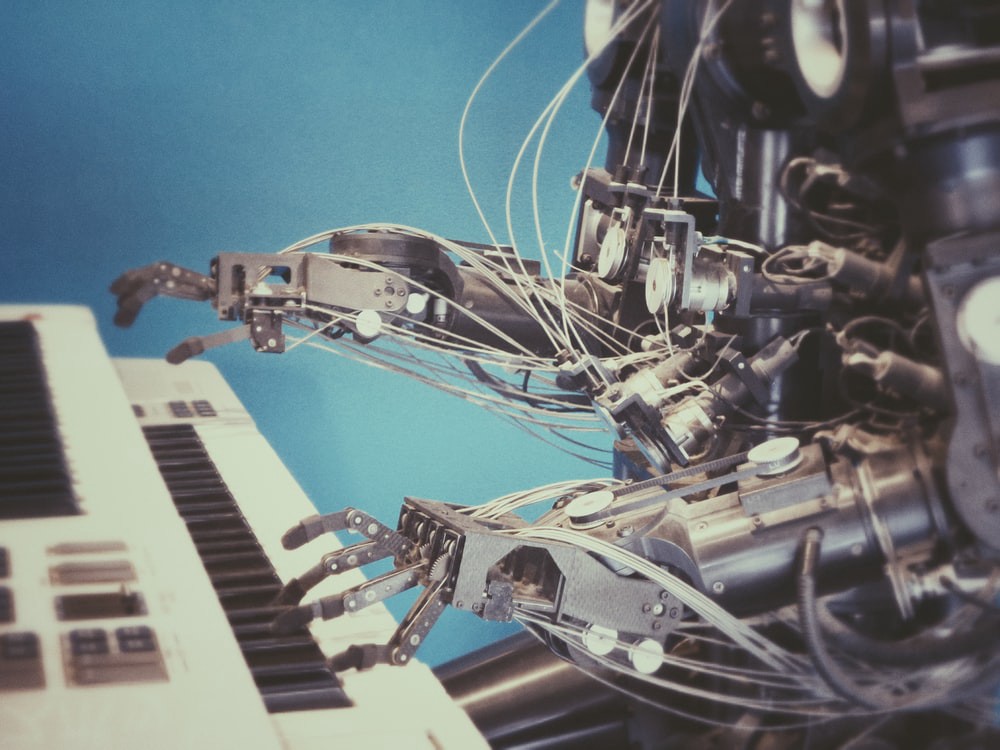Not Getting the Value from AI?
You may be asking the wrong questions

Microsoft Executive Andrew de Rozairo argues that individuals and organisations alike need to embrace the latest innovations in tech, making a case for why AI provides the most value.
Is technology really so valuable and transformative?
- In 1996, just 25 years ago, the top companies by market capitalisation in the world were all asset-intensive: General Electric, Royal Dutch Shell, Coca Cola, NTT, ExxonMobil.
- In 2001, we saw the first tech company join: GE, Cisco, ExxonMobil, Pfizer, Microsoft.
- Little had changed by 2006: ExxonMobil, GE, Microsoft, Citigroup, BP.
- In 2011: ExxonMobil, PetroChina, Apple, ICBC, Petrobras.
- By 2016, this looked very different: Apple, Alphabet (Google parent), Microsoft, ExxonMobil, Berkshire Hathaway.
- And in 2021, the top 5 companies are all technology-intensive: Apple, Microsoft, Amazon, Alphabet, Facebook.
These days, we hear leaders in every sector talking about how technology is transforming their industries. Kevin Plank, the founder of sportswear brand UnderArmour, talks about the move to wearables; either Apple will start making clothes, or UnderArmour needs to move into tech, as they have done with acquisitions like MapMyRun and others. A modern high-end car has over 100 million lines of code. Assistants in the cabs of combine harvesters track the quality of grain coming into the machine and adjust settings accordingly. The list of examples goes on.
Clearly, the influence of technology is no longer an IT matter or just relevant for Chief Technology Officers and their tech teams. It should be a board-level topic for most, if not all, companies, and here are some of the key questions that boards should be considering:
- How will technology disrupt our industry? How will it change the basis of competition? Think about what Apple would do differently if they made T-shirts, or what Uber would do if they moved into freight.
- Are we investing in the right portfolio of capabilities to capture the opportunities and address the threats?
- Are we focusing our efforts and investments to drive real value, either in delighting our customers or improving our productivity?
These are pertinent questions, but technology is a broad domain, so it may be worth focusing on some of the most important and relevant areas. Although sensors, Internet of Things, drones and robotics are all transformative, I would argue that software is the underlying foundation of all of them, and Artificial Intelligence (AI) is the domain of software that has the potential to deliver the most value.
What is AI?
There are many formal definitions, but the clearest explanation to me comes from its origins. In 1959, Arthur Samuel built a computer program to play checkers. Arthur himself was not a great checkers player, but he taught the program the rules and how to assess the probability of winning the game, based on each possible next move, by using historical information. Soon, the computer was able to beat Arthur at checkers, and many consider this the beginning of Artificial Intelligence.

Source: IBM
I classify AI into three levels — let’s call them huge, big and small for now.
Huge AI deals with massive problems; we have seen it used a lot recently to help us understand the origins, spread and potential treatments for COVID-19. It is also being used to help us understand climate change and its planetary scale impacts. At a slightly smaller scale, it helps cities undertake urban planning, e.g. to determine which bus routes are used most or to display different routes that would serve more citizens.
Big AI is undertaken by organisations to solve more focused problems. Why are my customers churning? Can I increase the productivity of my assembly line? Can I predict machine failures ahead of time and fix them before they break? Can I learn from Health and Safety incidents and improve the safety of my workers? These are some of the questions big AI can answer. It is developed by Data Scientists and Data Engineers who leverage deep experience, sophisticated algorithms and lots of computer resources.
Small AI is a much more recent trend. It focuses on improving the productivity of individuals or small teams. It leverages tools like low-code/no-code platforms to democratise not just the use of AI, but also the development of AI. For the first time, the tools that are needed to build valuable AI are easy enough for people without formal IT backgrounds to use.

My favourite example of small AI is Samit Saini’s journey at Heathrow. Until recently, Samit was a security officer at Heathrow Airport reminding travellers to take their laptops out of their bags before going through security cameras. Since there are lots of travellers who don’t speak English, he had a big folder with these questions printed out. He had heard about software tools that were easy to use and started building a mobile app to find the right language to translate his questions. Today, he heads up a user adoption team at Heathrow Airport. This is a great example of using technology to solve ‘small’ problems.
As we think about Africa’s development over the coming decades and face the realisation that this continent will have the largest working population in the world, ‘small’ AI, or citizen development, could become one of the most important tools to ensure that we don’t just create jobs, but that we leverage technology to create productive employment and ensure competitiveness in the global economy.
Coming back to our original board-level questions, I believe that technology will disrupt every industry, and organisations that don’t embrace technology will not be competitive. The capabilities that we need to invest in range from Big AI, with teams of Data Engineers and Data Scientists, to Small AI, enabling many or all of our employees to build their own productivity tools. This will help organisations deliver value to customers and shareholders while improving the job satisfaction of their employees.
As we dig deeper into the future of Big AI and Small AI, my learnings point to the need to spend much more of our time ensuring that we are asking the right questions at the outset of projects — thinking all the way through from insight to outcomes.
The ROOM is home to a lifelong, highly specialised community of young and agile digital talent, connecting individuals and companies across the globe with the skills and resources they need to thrive in the new world of work. Visit The ROOM to access a pool of world-class Software Engineers, Data Analysts, Cloud Developers, and more.

Andrew de Rozairo has worked for over 30 years at the intersection of business value and technology, helping customers including Vodafone, Shell, BP, Procter & Gamble, Maersk and Equinor get strong returns on their technology investments. He is currently the Energy and Transportation Industry Executive at Microsoft, before which he ran SAP’s Global Centre of Excellence for Customer Innovation. He has founded and run start-ups and VC-backed smaller companies.
